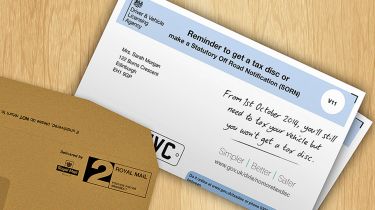Road tax set to rise in April: here’s how much more you’ll pay
Drivers with newer cars will now pay £10 more per year, although the biggest gas guzzlers fare even worse

Road tax – officially known as Vehicle Excise Duty (VED) – is set to rise in April 2024. It’s now been confirmed that the biggest gas guzzlers will be charged an additional £140 and that yearly rates will rise in-line with the UK’s high level of inflation.
So what does this mean? Well, Chancellor Jeremy Hunt MP announced last November in the Government’s Autumn Statement that Vehicle Excise Duty (VED) would rise in-line with inflation in 2024. HM Treasury has confirmed to Auto Express that given inflation has been as high as 6 per cent in recent months, VED has risen by £10 for 2024.
This brings the yearly fee (paid between years two and six of ownership) for non-zero emissions vehicles bought after March 2017 to £190, up from £180. Plug-in hybrid cars still get a £10 discount, meaning drivers will pay the same as petrol and diesel car owners did last year. Electric cars and hydrogen fuel cell cars remain exempt from VED for one more year, although this tax break will end in 2025.
Cars that find themselves liable for the ‘luxury car’ tax surcharge aren’t so lucky, however, as the additional £390 payment is now confirmed to have risen to £410, Therefore, cars registered after April 2017 that had a list price in excess of £40,000 will have to pay a huge £600 a year in yearly road tax. Expensive EVs currently escape this surcharge, but it’s likely this will no longer be the case when they become liable for VED as of April 2025.
That’s not all, as the first annual fee (which is only for brand new vehicles) has also gone up, too. Once again, zero-emissions cars are spared the one-off charge – only for one more year, might we add – but the Treasury has confirmed that the biggest gas guzzlers (those emitting over 255g of CO2/km) will be charged £140 more than last year, with the first-year rate of VED rising to as much as £2,745.
Older cars registered before April 2017 also see rises in-line with inflation; vehicles of this age emitting less than 100g of CO2/km will still be exempt from VED payments, although there are indeed increases elsewhere across the board. Classic cars aged over 40 years old still manage to escape the road tax charge, though.
Want the latest car news in your inbox? Sign up to the free Auto Express email newsletter...




